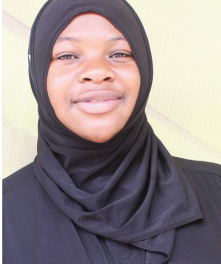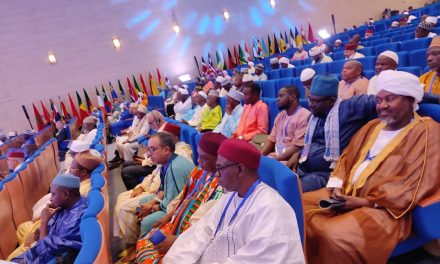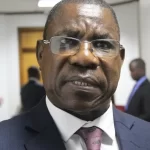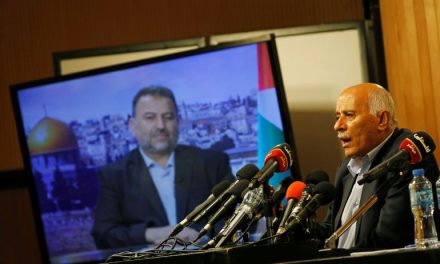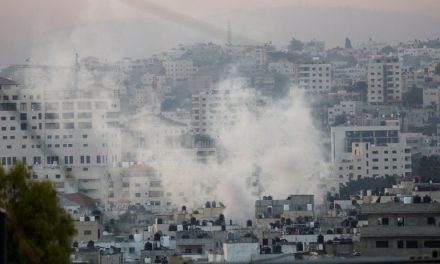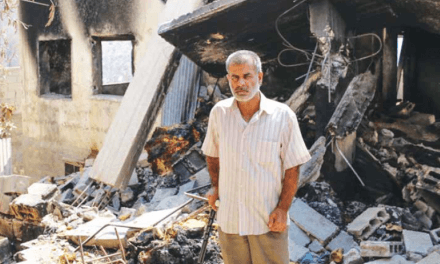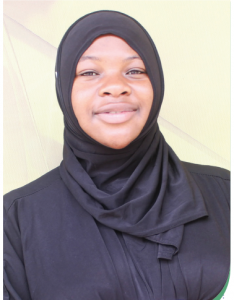
Across the Mideast, a Surge of Support for Palestinians as War Erupts in Gaza

When the United Arab Emirates, Bahrain, and Morocco announced that they were establishing relations with Israel in 2020, Emirati officials said the deals were symbols of peace and tolerance, while then President Donald J. Trump declared “the dawn of a new Middle East.”
Those words rang hollow to many in the region, though. Even in the countries that signed the deals, branded the Abraham Accords, support for the Palestinians and enmity towards Israel over its decades-long occupation of their
land remained strong, particularly as Israel’s government expanded settlements in the Palestinian West Bank after the agreements.
On 7th October 2023, when Palestinian gunmen from the blockaded territory of Gaza surged into Israel, carrying
out the boldest attack in the country in decades, it set off an outpouring of support for the Palestinians across the region. In some quarters, there were celebrations even as hundreds of Israelis and Palestinians were killed and Prime Minister Benjamin Netanyahu of Israel threatened a “long and difficult war” ahead.
“This is the first time that we rejoice in this way for our Palestinian brothers,” said Abdul Majeed Abdullah Hassan,
70, who joined a rally with hundreds of people in the island kingdom of Bahrain. In the context of the Israeli
occupation and blockade, the Hamas operation “warmed our hearts,” he said, calling his government’s deal to
recognise Israel “shameful.”
Demonstrations in solidarity with the Palestinians took place across the region, including in Bahrain, Morocco,
Turkey, Yemen, Tunisia and Kuwait.
In Lebanon, Hashem Safieddine, head of the executive council for the Iran-backed militia Hezbollah, delivered a fiery speech lauding “the era of armed resistance.” And in Egypt’s coastal city of Alexandria, a policeman opened fire on Israeli tourists, killing two Israelis and an Egyptian.
The ripples spreading from Gaza underscored what many officials, scholars, and citizens in the region have been saying for years: The Palestinian cause is still a deeply felt rallying cry that shapes the contours of the Middle East, and Israel’s position in the region will remain unstable as long as its conflict with the Palestinians continues.
Diplomatic “normalisation” agreements between Israel and Arab governments, even with the powerhouse of Saudi Arabia, where American officials have been pushing recently for normalisation, will do little to change that, many regional analysts say.
“The current war is a stark reminder that lasting peace and prosperity in the region is only possible after resolving the Israeli-Palestinian conflict,” said Bader Al-Saif, a professor at Kuwait University. “No amount of heavy lifting or acrobatics in dealing with Israel on other files can sidestep or erase this simple fact.”
Many Arab nations, including Saudi Arabia, have long insisted that the price of recognising Israel must be the creation of a Palestinian state.
But over the past decade, that calculus has shifted as authoritarian leaders weigh negative public opinion towards a relationship with Israel against the economic and security benefits it could offer and what they might be able to get from the United States in return.
The Biden administration has been pressing for a deal that would establish ties between Israel and Saudi Arabia in exchange for significant concessions to the kingdom. Saudi officials have demanded American security assurances and support for a civilian nuclear programme.
Last month, Crown Prince Mohammed bin Salman of Saudi Arabia made his first public reference to the negotiations, saying in a Fox News interview that the talks felt “real” for the first time. And in early October this year, the kingdom’s newspapers, which operate under limited press freedom, began publishing a spate of columns that were subtly or openly supportive of normalisation.
The eruption of violence on 7th October 2023 presented a significant challenge to those efforts. It also made comments by King Abdullah II of Jordan at a conference in New York in September 2023 appear prescient: “This belief by some in the region that you can parachute over Palestine, deal with the Arabs, and work your way back
does not work,” he said.
Indeed, some Arab officials and scholars complain that their warnings about normalisation deals that do not sincerely address the Israeli-Palestinian conflict have fallen on deaf ears.
Watching the events in Gaza feels like hearing Arabs say “we told you so” to the American president. Khalid al-Dakhil, a prominent Saudi academic, wrote on the social media platform X. “Ignoring what’s right in finding a just solution to the Palestinian cause.

